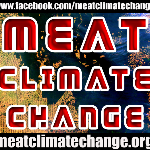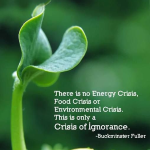
Reducing Footprints by Reducing Animal Consumption by Meat Climate Change
 Jennifer Perron Oct 3, 2015 09:41 | Dear Moses, Thank you for your proposal on spreading awareness of the emissions implications of meat consumption under the Global Climate Action Plan of MIT's Climate CoLab. I am one of the Fellows for this contest, here to serve as a liaison to the Colab, answer any questions you may have, and help provide substantive feedback to strengthen proposals. Fellows will also have a role in the evaluative portion of this contest. You are off to a good start with your concept and description. Here are a few suggestions you could consider to strengthen your proposal:
Thank you once again for your contributions to the CoLab and look forward to seeing the completed product! Best, Jennifer |
 Laur Hesse Fisher Nov 3, 2015 03:53 | Having trouble finding regional plans to integrate into your Global Climate Action Plan? |
 Ulrich Knirsch Nov 21, 2015 12:37 | Here in Germany there was a proposal to introduce (not by law but by public awareness) a "meat free Thursday". It received the predictable criticism "nobody tells me what to eat". In fact though, we are not that far from implementation: By (Christian) custom, many people do not eat meat on Fridays and thus most company canteens do not offer it then. The alternative us usually vegetarian and/or fish. In Sweden there is another custom, that is to eat a dish with pea soup on Thursday. Nobody is forced to do it, but most do. Back to Germany, with the influx of refugees from Muslim countries, more and more places will have to offer options without pork. Since there is also a (still small) market for vegetarian food, the trend will probably be to go in that direction. Furthermore the recent health studies on meat, as well as awareness of animal rights and water issues will help to transport this issue. What is needed now is a smart ad campaign. |
 Vivian Price Nov 30, 2015 11:24 | Good to meet you, Moses. VisionLA'15 was better for having you as a participant. Our exhibit is http://visionlafest.org/event/watts-now-visionla-15-at-the-wlcac/2015-12-01/
|
 Michael Hayes Dec 5, 2015 02:05 | Dear Mosessite, I've closely observed the CoLab operation for some time now and I am also the most active contributor. In the time I've spent doing such, I've seen this type of voting surge happen on a number of occasions. Also, I have good reason to believe (which I can not go into details here) that the CoLab team adheres to an extremely high ethical standard and should be trusted to do the right thing. Please keep in mind, moreover, such accusations of misconduct should be directed, through private email, to the CoLab team before openly accusing others of serious misconduct. If fraud has happened, 1) there is no ruling out that a supporter of another proposal did the dirty deed simply to discredit the innocent team or 2) a supporter of the innocent team took it upon themselves to try to game the votes and please keep in mind that 3) a number of participants actually prefer to remain anonymous, through using a pseudonym, for various reasons. Further, many proposal authors/supporters pay close attention to the timing of many aspects of the contest. Such as, not just last minute voting surges but also it is not unusual for an author to wait until the last few minutes before the submission deadline to post or edit their proposal simply so that their proposal gets posted at the top of the list. I've seen this type of maneuver happen many many times! In brief, trust the CoLab team to walk the high road on these issues and give them time before openly and publicly insulting (and royally pissing off) many innocent fellow participants. Do you realize that the way you phrased your concern that you actually accused....ME....of wrong doing??? That does not make me a Happy Camper;)) To conclude, I ask that the CoLab team simply remove the comments associated with this public accusation of wrong doing as there is, at this time, no benefit to anyone by having such unsubstantiated and embarrassing comments as part of the permanent record. Mosessite's concerns are noted and will be properly reviewed and he should be allowed the benefit of rethinking what he actually wishes to be apart of....his....CoLab permanent history. One truly great service that the CoLab team offers is that they can and will 'Let You Take Your Comments Off The Record' and they have been kind enough to me to do such on multiple occasions when I, myself, very publicly insert both feet into my rather ignorant mouth. Warmest regards (from a profoundly honest man), Michael |
 Moses Seenarine Dec 5, 2015 10:26 | Proposal contributor Instead of trying to mobilize more votes during the last two days for my proposal, I had to spend all my energies and effort documenting fraud. And, instead of gratitude, you want all the my investigation and analysis to be deleted? 1) 66 votes in a 3-hour period at 2.7 minutes for vote, including 36 new members, is highly dubious 2) members with similar names and screen names, joining at the same time, is also improbable That fact that these two issues may be part of sabotage makes them even more serious. They should be public, if only as a deterrent. Voting fraud need to be seriously addressed since they place the credibility of the program at stake. Moreover, it serves as a huge disincentive to others who play by the rules. |
 Moses Seenarine Dec 5, 2015 10:46 | Proposal contributor A Final Note, from a recent article we published on OpEdNews Remarkably, the world's government leaders, and many climate groups, have omitted diet and over-consumption from the COP climate agenda. Also absent are the planet's two leading carbon sinks - soils and oceans. Reducing over-consumption and expanding carbon sinks is putting water on the climate change fire. Livestock production is the leading cause of deforestation, but as countries file their climate change pledges, animal products will not be on the GHG reduction list. Neither will marine life. About 1% of the oceans' plankton dies annually from ocean acidification, which is mostly caused by high carbon pollution from industrial agribusiness. Phytoplankton stocks have decreased by 40 percent since 1950. This astonishing collapse may have dramatic consequences both for the oceans and for humans. Two out of every three breaths we take come via phytoplankton. Phytoplankton absorbs a huge amounts of CO2 each year, so the disappearance of these microscopic organisms could further accelerate warming. A 2015 Chatham House report found consumption of animal products is a major driver of climate change. And reducing global meat consumption will be critical to keeping global warming below the 'danger level' of two degrees Celsius, the main goal of Paris climate negotiations. Yet, diets and over-consumption taxes are not on the COP21 agenda. Global meat consumption has already reached unhealthy levels, and is on the rise. In the global North, the average person is already eating twice as much meat as is deemed healthy by experts. Over-consumption is already contributing to the rise of obesity and non-communicable diseases like cancer and type-2 diabetes, and it is a growing problem. Alarmingly, global animal product consumption is set to rise by over 75 percent by 2050. |